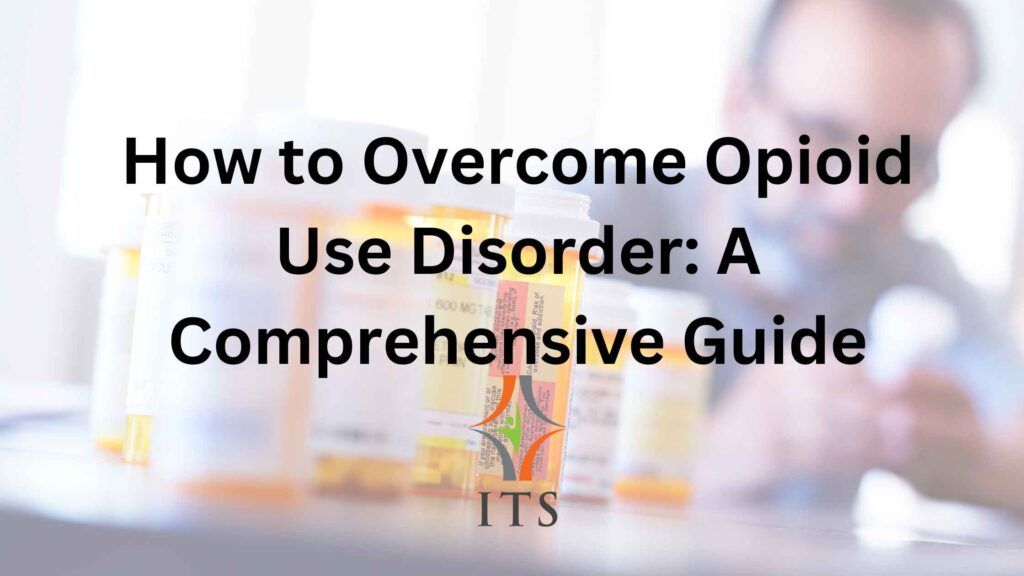Opioid use disorder (OUD) has reached epidemic proportions, affecting millions of individuals and their families across the globe. The journey to overcome opioid use disorder can be challenging and daunting, but with the right resources and support, recovery is not only possible but attainable. This guide explores the steps and strategies for overcoming OUD, offering hope and direction for those seeking to reclaim their lives.

Understanding Opioid Use Disorder
Before delving into the methods of overcoming Opioid Use Disorder, it’s essential to understand what this disorder entails. Opioid use disorder is a medical condition characterized by the compulsive use of opioids despite harmful consequences. It includes both prescription painkillers (like oxycodone and hydrocodone) and illegal drugs (such as heroin).
Signs and Symptoms
Recognizing the signs and symptoms of OUD is the first step in seeking help. These may include:
- Cravings: An intense urge to use opioids.
- Loss of Control: Inability to stop or reduce opioid use.
- Withdrawal Symptoms: Experiencing physical and mental symptoms when not using opioids.
- Neglecting Responsibilities: Failing to meet obligations at work, school, or home.
- Continued Use Despite Problems: Using opioids even when it causes relationship issues, health problems, or legal trouble.
Steps for Overcoming Opioid Use Disorder
Overcoming Opioid Use Disorder requires a multifaceted approach that addresses both the physical and psychological aspects of addiction. Here are the key steps in the journey to recovery.
Seeking Professional Help
The first and most crucial step is to seek professional help. Healthcare providers, addiction specialists, and mental health professionals can offer the necessary guidance and support to navigate the path to recovery.
Medical Detoxification
Detoxification is often the initial phase of treatment, aimed at safely managing withdrawal symptoms under medical supervision. This process helps the body eliminate opioids and prepares individuals for ongoing treatment.
Medication-Assisted Treatment (MAT)
Medication-assisted treatment combines medications with counseling and behavioral therapies to address opioid use disorder comprehensively. MAT is highly effective in reducing cravings, preventing relapse, and stabilizing body functions.
- Methadone: A long-acting opioid agonist that reduces cravings and withdrawal symptoms.
- Buprenorphine: A partial opioid agonist that alleviates withdrawal symptoms and cravings.
- Naltrexone: An opioid antagonist that blocks the euphoric effects of opioids.
Behavioral Therapies
Behavioral therapies are integral to overcoming OUD, helping individuals change their attitudes and behaviors related to drug use.
Cognitive-Behavioral Therapy (CBT)
Cognitive-behavioral therapy focuses on identifying and modifying negative thought patterns and behaviors. It equips individuals with coping strategies to handle stress and triggers without resorting to opioid use.
Contingency Management
Contingency management involves providing tangible rewards for positive behaviors, such as maintaining sobriety. This approach reinforces healthy behaviors and motivation for recovery.
Motivational Interviewing
Motivational interviewing is a client-centered approach that enhances an individual’s motivation to change. It helps resolve ambivalence towards treatment and encourages commitment to recovery goals.
Building a Support Network
A robust support network is crucial for sustaining recovery. Surrounding oneself with supportive family members, friends, and peers can provide encouragement and accountability during the recovery process.
Support Groups
Support groups like Narcotics Anonymous (NA) offer a sense of community and shared experience. These groups provide emotional support, practical advice, and inspiration from others who have successfully overcome OUD.
Family Involvement
Family involvement in the recovery process can strengthen relationships and build a supportive environment. Family therapy can also address any dynamics that may contribute to substance use and facilitate healing.
Sober Living Environments
Sober living environments provide a structured, drug-free living situation that supports individuals in early recovery. These settings promote accountability, peer support, and the development of life skills.
Developing Healthy Habits
Adopting healthy habits is a vital component of long-term recovery. Physical, mental, and emotional well-being are interconnected, and fostering overall health can reduce the risk of relapse.
Physical Health
Regular exercise, balanced nutrition, and adequate sleep are fundamental to physical health. These habits improve mood, reduce stress, and enhance overall well-being.
Mental Health
Mental health care is critical, as co-occurring disorders like depression and anxiety often accompany OUD. Continual mental health support through therapy or counseling can address these issues and support sustainable recovery.
Mindfulness and Stress Management
Practicing mindfulness and stress management techniques such as meditation, yoga, and deep breathing exercises can help cope with the daily stresses that might otherwise lead to relapse.
Embracing Long-Term Recovery
Recovery from OUD is a lifelong journey, and maintaining sobriety requires ongoing effort and vigilance. It’s important to recognize and celebrate milestones while being prepared to face challenges along the way.
Relapse Prevention
Relapse is often a part of the recovery process, but it doesn’t signify failure. Developing a relapse prevention plan that includes identifying triggers, maintaining a support network, and continuing therapy can help navigate potential setbacks.
Continuing Care
Continuing care through outpatient programs, therapy sessions, and support group meetings ensures ongoing support and accountability. Staying connected to the recovery community reinforces commitment to sobriety.
Conclusion
Overcoming opioid use disorder is a formidable challenge, but with the right combination of professional treatment, behavioral therapies, support networks, healthy habits, and ongoing care, recovery is within reach. If you or someone you know is struggling with OUD, take that courageous first step towards seeking help. Remember, the journey to recovery is not one you have to take alone—support, understanding, and hope are available every step of the way.
